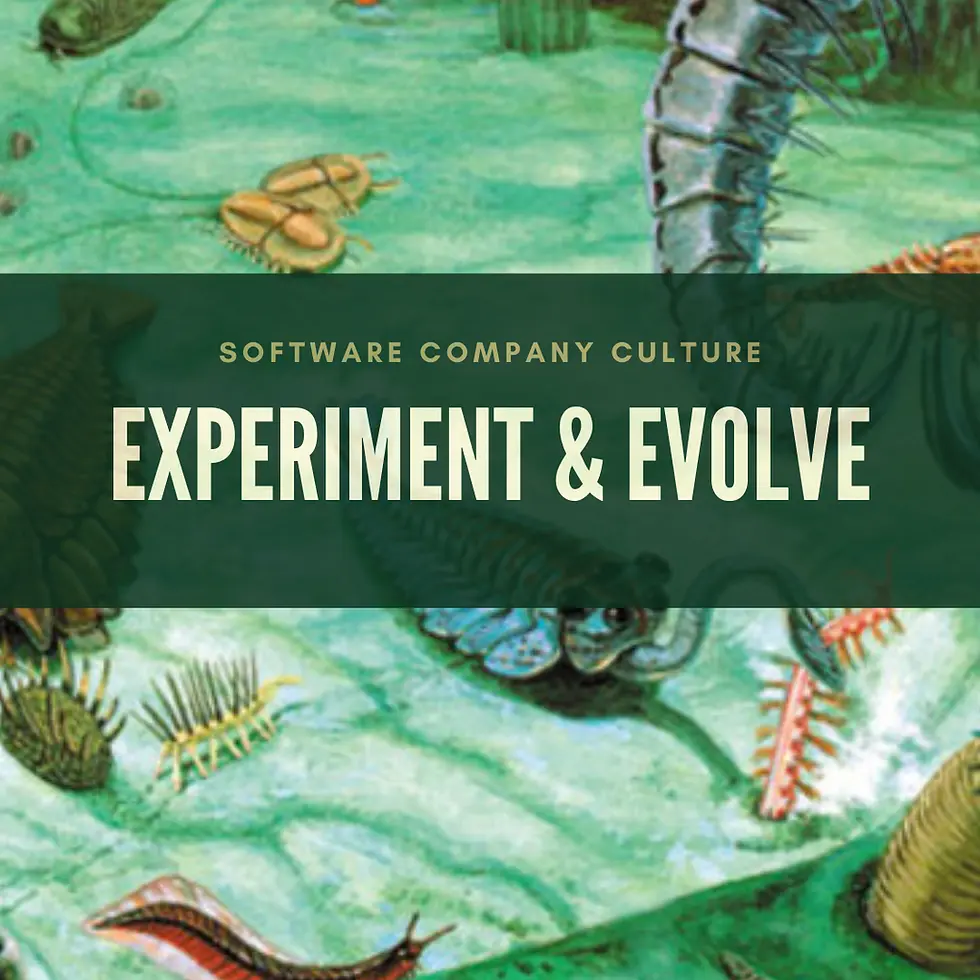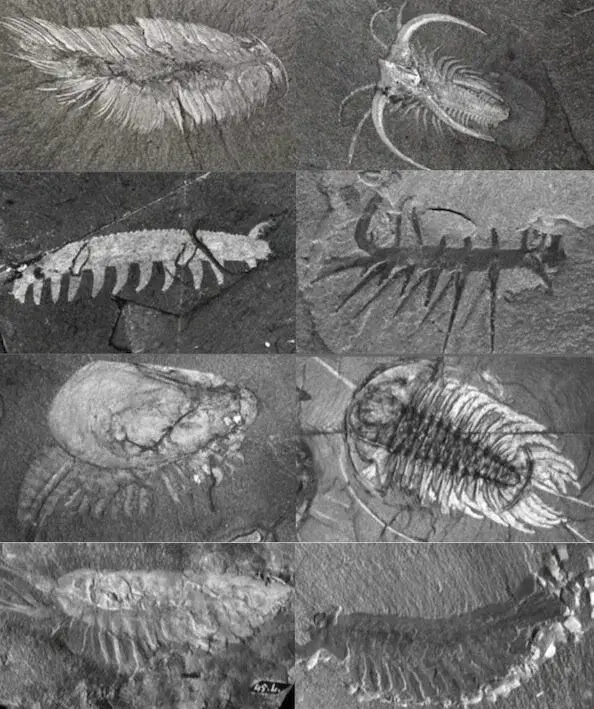Experiment and evolve - the best way to improve software company culture
- wahidium
- Feb 9, 2020
- 3 min read
Updated: Sep 4, 2025


By Bill Bryson
Experimentation in nature - Burgess Fossils
I am reading Bill Bryson’s (one of my all time favorite author) A short history of nearly everything and came across the discovery of Burgess Shale Fossils. These are fossils (literally thousands of them) that had been discovered in 1909 and scientists have been finding, categorizing and theorizing about them ever since. Even as late as 2015 a whole new set of fossils were found.
These fossils are important not because of the sheer number (although that’s always welcome) but because of the extraordinarily preserved state of soft bodied organisms and the extremely wide variety of them found together. They show amazing body shapes and structures that seem to have been completely lost in later ages.
The great biologist from Harvard Stephen Jay Gould wrote an amazing book Wonderful Life in 1989, and made Burgess Shale fossils famous. He suggested in that book that the diversity of the fossils indicates that many of the unique body types were just evolutionary experiments that became extinct because those “models” failed. If you look at the completely out of this world weird nature of the shape and structure of the life forms in the Burgess finds, you’ll probably agree too.
If we try to fit it with a modern day design success: it’s as if, instead of hiring the legendary designer John Ive , Steve Jobs just asked his engineers to come up with randomly designed iPhones in millions of different shapes and waited for the best one to come out from that.
By Stephen Jay Gould
Experimentation in the organization

Reading this made me think how an organization’s culture has strong similarities with this idea of random experimentation and evolution. There is almost no sure shot way of making an organizatiio’s culture be good.
There are obviously a lot of commons sense ideas and historical facts about what works and what doesn’t. But exactly what steps, behavior, formal and informal rules and policies will work for a particular team in a particular context and in a particular industry is very much a chance thing.

In the software space, culture is extremely important. So this is as important a concern as say skills of the team. Yet without any strong process and guidance most companies just seem to gamble away at the culture issue. A lot of the times it’s just how that company picked up the first set of hires or how its CEO thought the world should be.
But always pretty random and the success very much given to chance.
I think one huge thing that most companies miss out is the possibility of experimentation. Think through and try out controlled experiments on culture change. See what the results are. Discard if that particular change is bad and keep if it has hope. Just like the Burgess fossils keep changing the models and let the effects decide what stays and what doesn’t.
I see most companies staying rigid on culture - “this is how we are”, “this is how it’s always done” etc. I know that for the management, however progressive they are, not having a tried and tested best practice means it’s hard to decide, so they just decide on something and stick with it.
Yet I think for fluid and intangible thing like culture staying rigid is the worst thing possible. If the experimentation is allowed, even better if it’s planned and executed there is much higher chance of reaching a better point where culture fits the team and company’s goals the best.
Just as the Burgess fossils must’ve been weird (and wonderful) life that led to much better and yet more sophisticated life forms - experimentation or more importantly allowance for experimentation will lead much better forms of culture at your company. And that’s of vital importance for any software company.



